Dry Herb Vaporizers: Everything You Need To Know
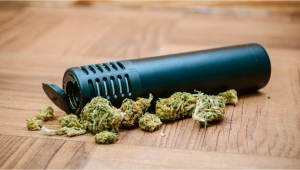
- 1. What are dry herb vaporizers?
- 2. How do dry herb vaporizers work?
- 3. The parts of a dry herb vaporizer
- 3. a. The chamber
- 3. b. The mouthpiece
- 3. c. The battery
- 4. How to use a dry herb vaporizer
- 4. a. Step 1: read through the instruction manual
- 4. b. Step 2: charging your vape
- 4. c. Step 3: the burn-off
- 4. d. Step 4: grinding the weed
- 4. e. Step 5: packing the chamber
- 4. f. Step 6: preheating your vape
- 4. g. Step 7: setting the temperature
- 4. h. Step 8: inhale and enjoy!
- 5. Final advice about using dry herb vaporizers
- 6. In conclusion
Did it ever come across to you that, even though you love smoking marijuana, it is now more often that the after side effects that it gives you leave you feeling not so happy about it? From coughing to a hoarse throat, difficulty breathing, and more, smoking cannabis is not precisely the best of them marijuana consumption method for our health. Perhaps this is the reason why newer ways of consuming cannabis even started popping up in the first place. We understand that not all of us will want to take edibles, cannabis oil, tinctures, or other oral methods, every time we want to get high to avoid smoking. But these aren't the only available options anyway. This is where dry herb vaporizers come in. They could be exactly what you are looking for, they come along with all the benefits of smoking, but somewhere along the way, they got rid of all the negative health affections of cannabis smoke.
Ultimately, vaporizers revolutionized the way that millions of cannabis users consume the herb. Technology has pushed the boundaries in countless sectors, and the cannabis industry is no exception. Humans have used fire as a means of combusting cannabis plant material for thousands of years. This rather archaic means of liberating phytochemicals such as cannabinoids and terpenes does the job. The application of such heat even swiftly transforms cannabinoid acids, such as THCA, into active neutral molecules such as THC. However, combustion comes with a real problem—it creates carcinogenic byproducts that are toxic to the human body and tied to nefarious disease states such as cancer. The advent and widespread adoption of vaporizers solved this keystone issue, to a degree. You see, vaporizers harness lower temperatures to produce a similar result.
These devices use heating elements—either conduction, convection, or a hybrid mix of both—to heat cannabis flowers up to precisely controlled temperatures. Things get hot enough to evaporate cannabinoids and terpenes, but not excessively hot to the point that combustion occurs. Therefore, vaping exposes users to far fewer levels of problematic carcinogenic chemicals.
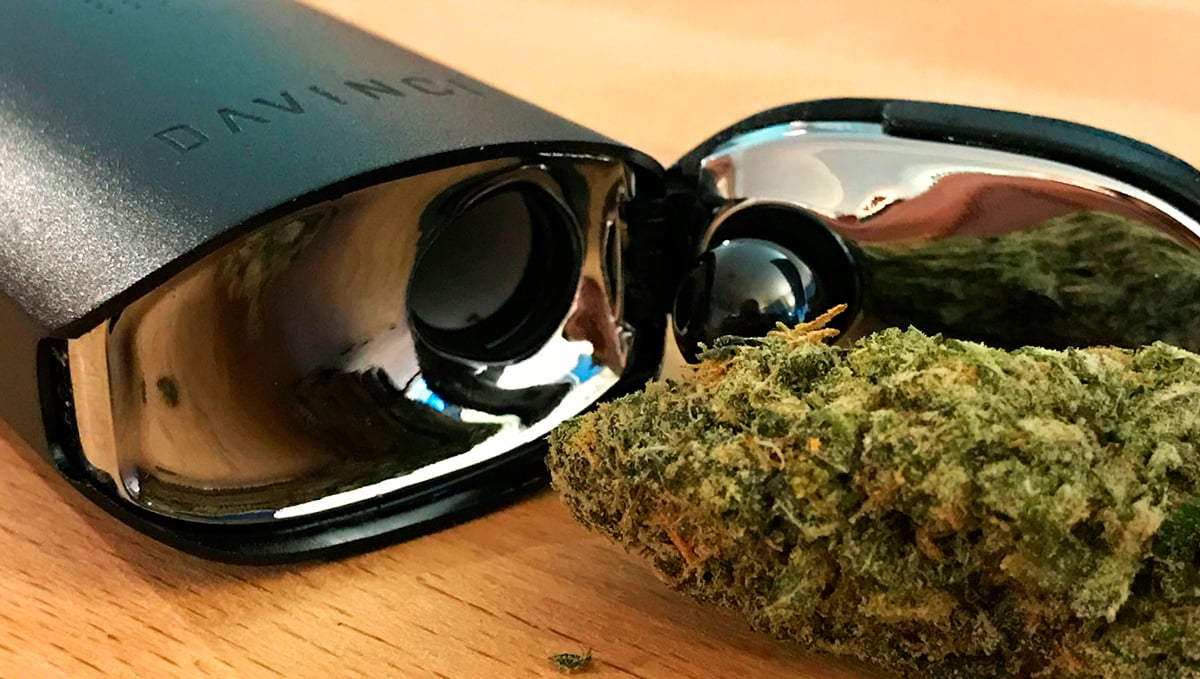
However, they’re not perfect. Vaping cannabis still comes with some health risks, including an association with acute lung injury. However, these concerns largely pale in comparison when weighed against those exerted by smoking the herb. Health concerns aside, vaping cannabis also comes with a list of other benefits that attract users to the method of consumption. For one, vapor smells a lot less than smoke. You’re likely familiar with how the smell of cannabis smoke clings to the tips of your fingers and your clothes. This makes burning a joint just before work quite a risky endeavor. However, due to the lack of combustion and byproducts, vapor smells considerably less. This also means vapor tastes much better than smoke; it has much more of a floral and vegetative flavor.
The cannabis industry is famous for its rapid and effective innovation. Naturally, following the popularity of vaporizers, manufacturers came up with new and exciting ways to boost sales and cater to all potential customers. Now, you have some serious choices when shopping around for a dry herb vape. You’ll find anything from large desktop models ideal for large social gatherings, to small and portable pen-like devices made for stealth and discretion. But not all vapes are geared up to process the same material. While some are made compatible with concentrates, others are purely designed to work alongside your dry herb. Below, you’re going to find out everything you need to know about the latter, and why switching to a dry herb vape will likely improve your cannabis experience.
1. What Are Dry Herb Vaporizers?
Unlike smoking which involves the combustion process for consuming the marijuana, vaporizers pull the heat up just enough to vaporize the cannabinoids and terpenes in cannabis, allowing us to inhale vapor containing these components instead of smoke. That's the key difference between vaporizers and smoking: the combustion process.
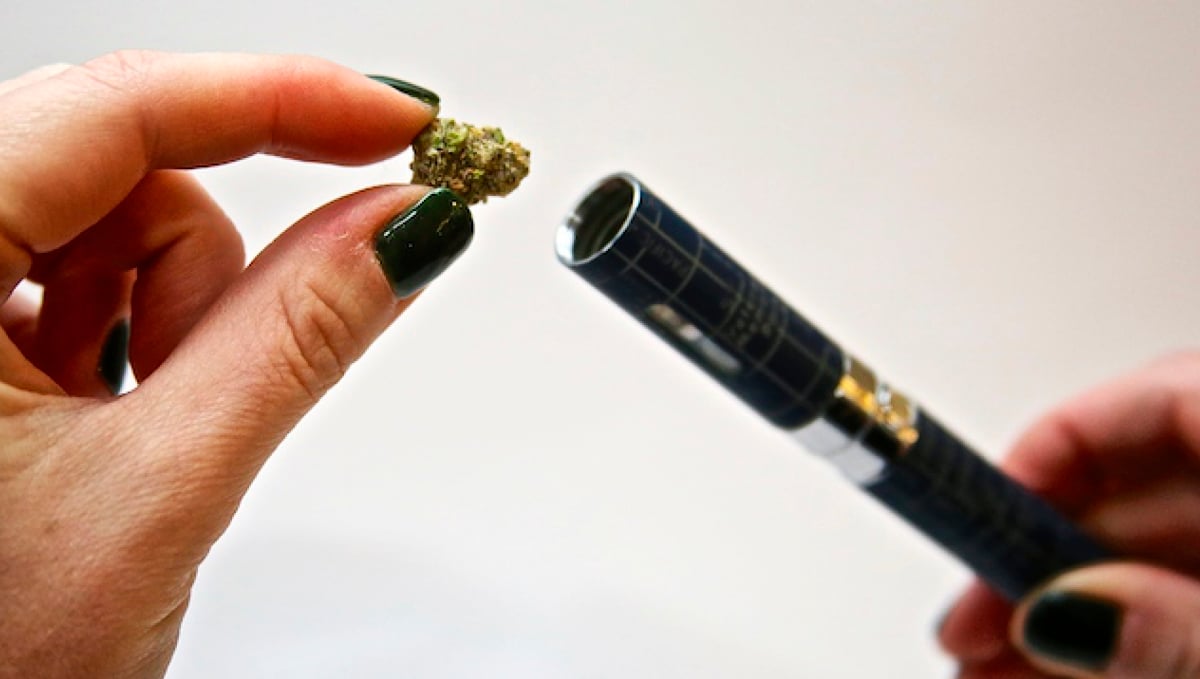
During the combustion process, secondhand components are released in the smoke, such as half a dozen known PAHs which can also be found during tobacco consumption and other 80% of non-cannabinoids. Given vaping doesn't reach these temperatures, there is only a 5% non-cannabinoid presence in vapor inhaling. To find out all of the differences between smoking and vaporizing check out the following article:
Now, what is the difference then between regular and dry herb vaporizers? Well, as the name implies, dry herb vaporizers use full, unprocessed bud flowers for consumption while other 'regular' vaporizers most likely use concentrated forms of marijuana such as wax, shatter, crumble, or CO₂ extracts normally found in vape pens. Dry herb vaporizers are mostly popular with users that have recently made the switch from smoking to vaping. Why? Because they offer a similar experience. They still involve the ritual of sitting down to grind and prepare your herb, and they provide a similar—albeit less harsh—taste and feeling on the lungs. Eventually, many users decide to experiment with vapes designed to process concentrates. However, you don’t have to limit yourself to either of these camps. Hybrid vapes offer the best of both worlds and work equally well with dry herb and concentrates, even at the same time!
There are different types of devices that fall under the umbrella of dry herb vaporizers. Each of these offers a completely different user experience. Some cannabis users remain loyal to a single type of device, whereas others develop large collections, meaning they have a choice of which dry vaporizer to use depending on the situation. The three major types of dry herb vaporizers include:
Desktop dry herb vaporizers
As their name suggests, these devices are large and bulky. You won’t be using one of these while traveling anytime soon. However, they are ideal for home use and social situations such as parties. Many of these devices offer detailed controls and even feature compatible smartphone applications. They can handle a lot of herb in one go. Users have the option of inhaling directly from them through long tubes, or by filling up large bags of vapour; these are perfect to pass around during social gatherings.
Handheld dry herb vaporizers
Handheld vapes are designed for portability. Although small, many of these devices also have many customizable settings and bright LED displays. Newer models have fast charging times and long battery lives, making them perfect for commuting, hiking, or anywhere away from home.
Pen dry herb vaporizers
These are a type of handheld vape. However, they fall into a separate category because of their distinct characteristics. Their pen-shape design makes them stealthy and discreet. They have shorter battery life and fewer controls than other handheld vapes, but what they lack in complexity, they make up for in unparalleled portability.
2. How Do Dry Herb Vaporizers Work?
Dry herbs vapes can function in two different ways, one involving a process called conduction, and another named convection, both of them engaging in the heating of the buds to turn the terpenes and cannabinoids, a.k.a. the decarboxylation process, into vapor.
Without decarboxylation, you wouldn’t experience the cannabis high! You see, raw cannabis flowers contain very little THC—even the strongest strains. Instead, they contain THCA; this acidic form of THC isn’t psychoactive. Applying heat changes the molecule by ejecting a part called the carboxylate group, converting THCA into THC.
But dry herb vaporizers don’t just perform the decarboxylation of THCA. They heat up enough to cause many of the diverse phytochemicals in cannabis to reach their boiling points. Each cannabinoid and terpene vaporizes at slightly different temperatures. Advances in vaporizer technology mean that users can select very specific temperatures in order to target the chemicals that provide them with the best subjective effects. Conduction for one part, works by direct contact with the herbs, using heating elements to transfer the heat to your buds. The best way to illustrate it is to imagine that your buds are being heated over a heating pad as if you were cooking with a pan over the stove.

On the other hand, convection would make more like the oven in the kitchen, heating your buds by creating a warm, or rather hot enclosed climate around your buds, almost like baking a cake. This way, the herbs are evenly and slowly heated, without reaching combustion. Some dry herb vaporizers use one or the other method, while others utilize a combination of both. There are no huge differences between both, just try them out and test what works best for you.
3. The Parts Of A Dry Herb Vaporizer
In order to get a full overview of dry herb vaporizers, and see if they could match your weed consumption lifestyle, understanding the parts of the vaporizer would be the best first approach. In summary, vaporizers consist of three parts:
- The chamber;
- The mouthpiece;
- And the battery.
The Chamber
Although it sounds like something out of The Lord of the Rings or Game of Thrones, the chamber is simply the place where you set the herbs. The first vapes to go on sale would come with stainless steel chambers. Now, more modern vapes come with chambers made of ceramic, which heats up faster, are better at retaining the heat, and don't affect your weed's flavor as much.
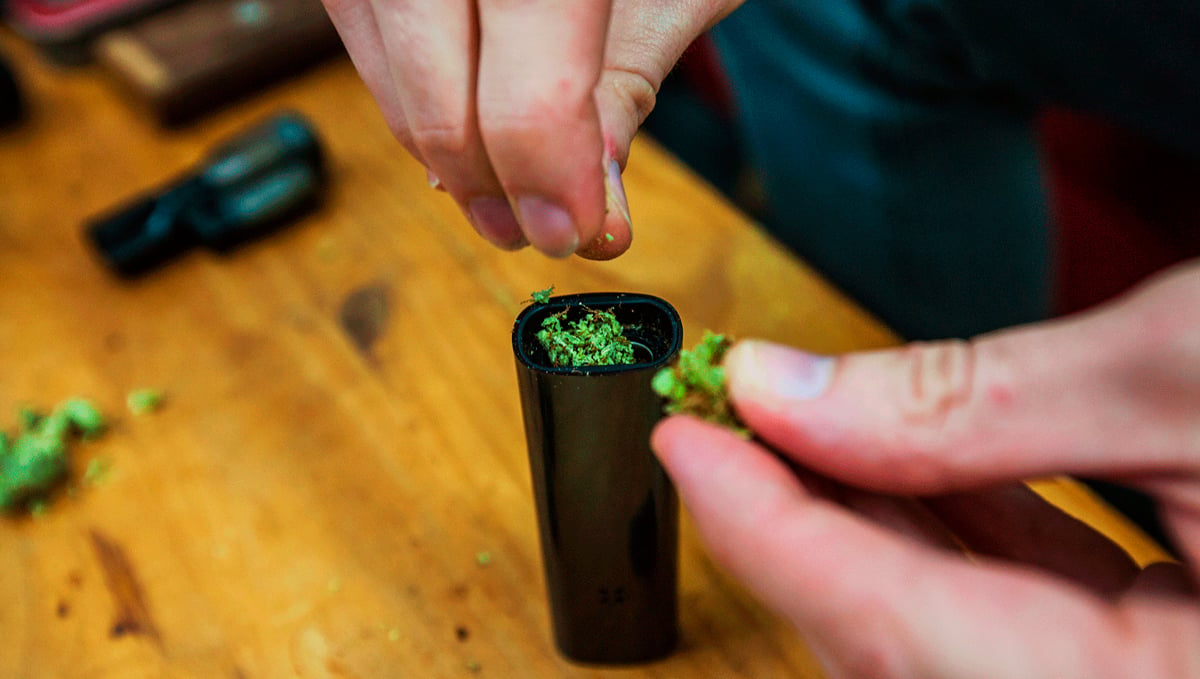
Another common chamber material is quartz, which takes longer to heat but retain the natural flavor of your marijuana better than the previous two.
The Mouthpiece
There isn't much science into it, the mouthpiece is just the part where you draw the vapor from the chamber and into your mouth. However, there's a big variety of mouthpiece shapes and materials, so make sure you compare a few of them to find what works best for you. Thin or round mouthpieces are usually the most comfortable ones, but their length could make it harder to inhale. Flat mouthpieces on the other hand skip this problem, but they tend to be more uncomfortable. When it comes to flavor, glass-mouthpieced vapes are a better option than ones with silicone or hard rubber pieces.
The Battery
The type of battery for your vape can make or break the deal. Don't go cheap on this aspect or you'll face some ugly surprises.
Extra AdviceKeep in mind that you'll need to recharge your vaporizer every now and then or you'll need to find other consumption alternatives when facing a discharged vaporizer.
Most modern vaporizers come with lithium-ion batteries, which are rechargeable, offering high energy density and providing a slower rate of discharging than other Ni-Cad or NiMH battery cells. Lastly, depending on your vape model, you'll also be able to remove the batteries or not.
4. How to Use A Dry Herb Vaporizer
Using a dry herb vaporizer is quite easy and although they may vary slightly, most of them are pretty similar to use. To use your dry herb vaporizer follow the next steps:
Step 1: Read Through The Instruction Manual
We get it, nobody likes to read any instruction manuals when you have a newly bought gadget in hand, all we want to do is to jump straight into testing it.

However, manuals do come with useful information and advice to make the most out of your new toy, so giving your vaporizer's manual a fast read before you start using it would be a good idea. You'll probably find optimal temperature suggestions and other interesting usage modes in your vaporizer's instructions.
Step 2: Charging Your Vape
Once you've read your vaporizer's manual, or not, you'll probably find that you need to fully charge it before you are able to test it. Most vapes sold in the market nowadays will come with USB chargers. In order to charge your dry herb vaporizer faster, connect it to a wall adaptor rather than a computer. Just like with most technology items, to preserve the life of your gadget's battery try to always charge it to its fullest, and let it run out of battery completely before you recharge as well.
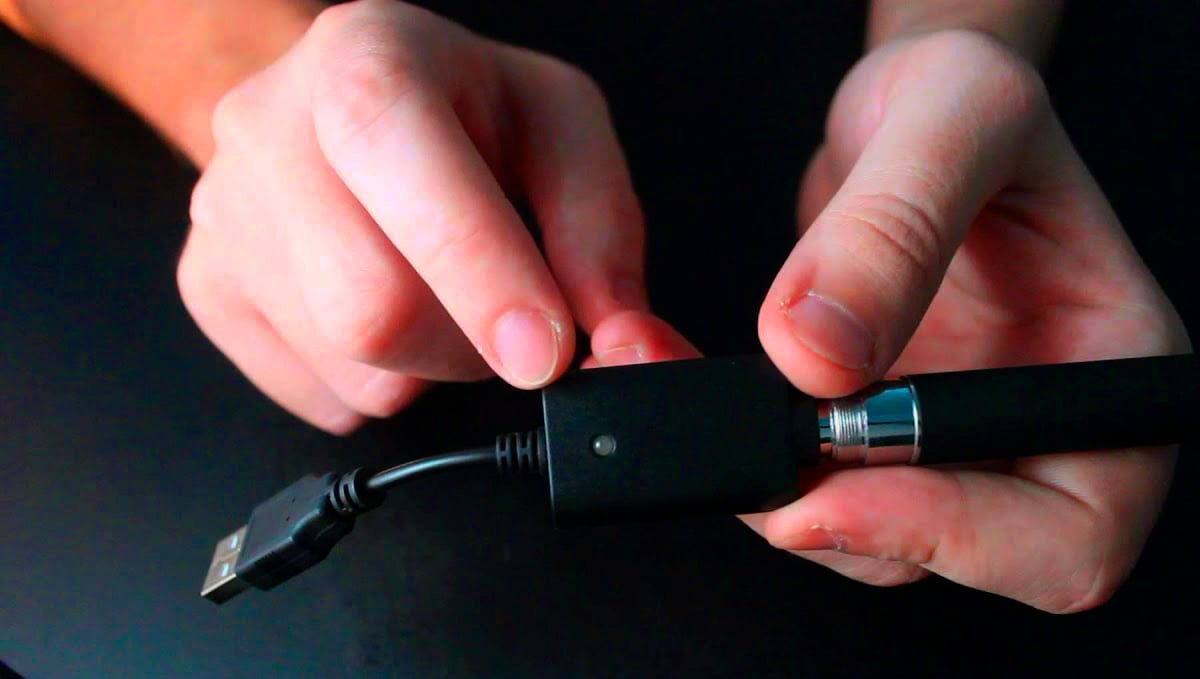
This way you'll help the vape calibrate the battery and preserve its life expectancy.
Step 3: The Burn-Off
You won't likely find this step in your vaporizer's manual but it's a vital step you definitely should do before using your new vape for the first time. After you've fully charged the dry herb vaporizer, make sure that its chamber is empty and clear from visible particles. Turn the vape on and bring it to heat up to its highest setting. Repeat this process 2-3 times. By performing this burn-off step you'll ensure you've gotten rid of any residues left in its chamber from manufacture or storage.
Step 4: Grinding The Weed
It's important to grind your weed buds before you start using your dry herb vaporizer. If you leave big chunks of bud, they won't likely burn evenly, leaving some parts more roasted than others.
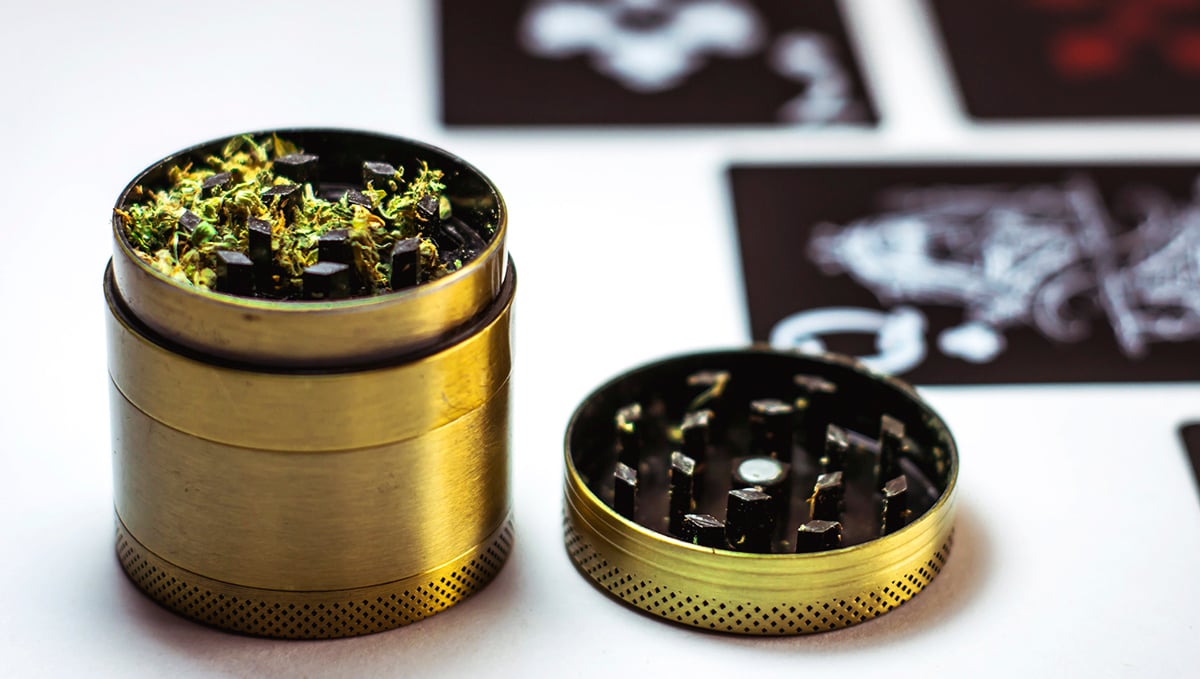
When you grind your marijuana to a medium-fine consistency you'll allow better hits to flow through the vape's mouthpiece and into your lungs.
Step 5: Packing The Chamber
Remember when we suggested reading the instruction manual? This is the step that explains why. Since not every vaporizer is the same, you'll want to know how much you should pack your chamber with.
Extra AdviceDefinitely do add some fairy dust, a.k.a kief or pollen when packing your chamber for that extra magic.
The key is never overdoing the packing part or you might end up blocking your dry herb vape's ability to function correctly.
Step 6: Preheating Your Vape
Most of today's dry herb vaporizers come with a preheating feature. Don't forget to make use of it to get the vape to temp faster and improve the vaping experience.
Step 7: Setting The Temperature
After you've preheated your vaporizer, the next step is selecting your temperature.
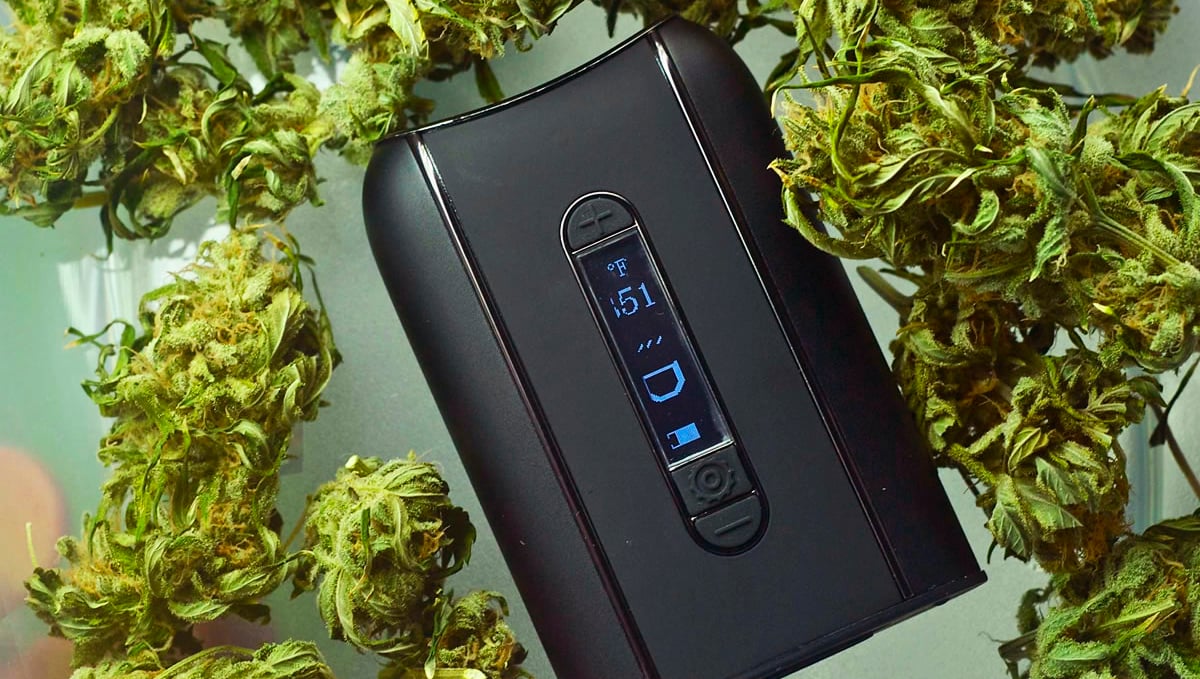
Some vaporizers come with temperature preset settings while others will allow custom temperature dialing. Either way, it will likely take you a few tries to find what's the temperature setting that suits you best. Most of the time, cannabis is vaped at a temperature between 170-220°C.
Step 8: Inhale And Enjoy!
Once you've successfully followed the previous steps you're ready to have a toke of your dry herb vaporizer. Keep in mind that smoking out of a vaporizer isn't the same as smoking a joint or from a bong, it needs slow, consistent draws that last at least 3 to 5 seconds.
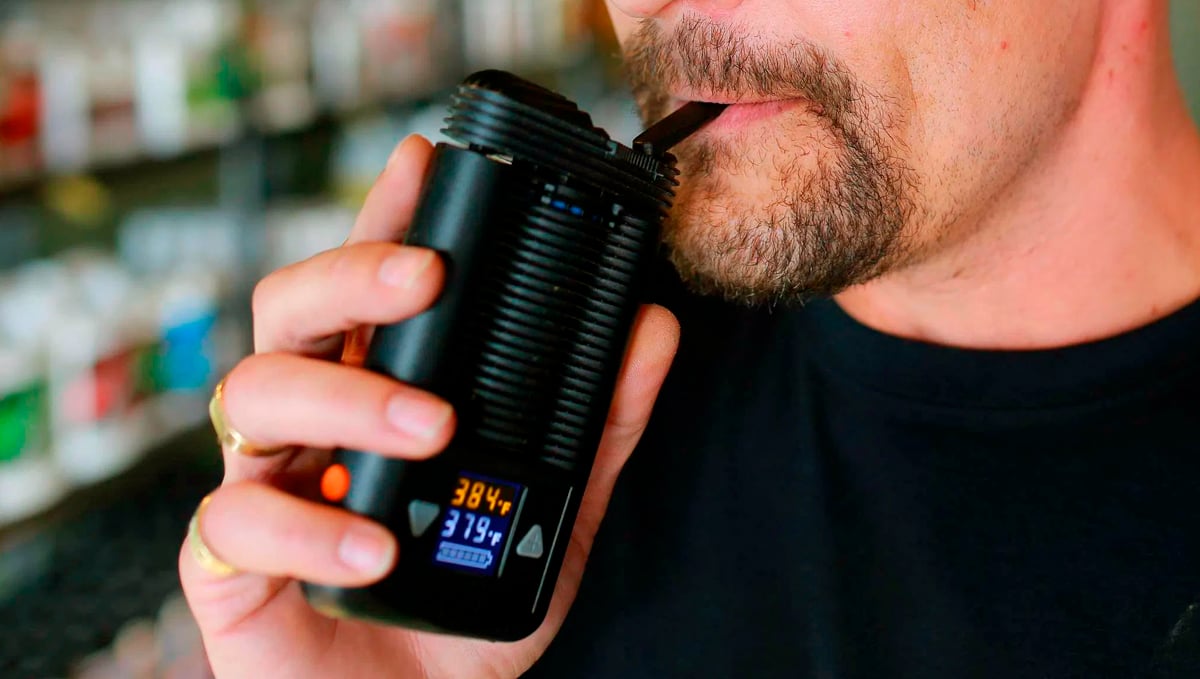
Also, don't forget that more cannabinoids and terpenes will be released when you use a vape, so take a couple of hits and wait some minutes to check for the level of high in order to avoid getting too stoned, if that even exists, too fast.
5. Final Advice About Using Dry Herb Vaporizers
To ensure a great vaping experience you should consider the following aspects:
| Cleaning | Just like with other weed consumption gadgets, like pipes and bongs, cleanness is vital. If you keep your vape clean you'll ensure a clean flavor as well. |
|---|---|
| Using the right weed | The right weed means to make sure that your buds are well dried and cured. Sticky marijuana will be harder to vaporize. |
| Getting a good grinder | As we said, you'll want to grind your buds well enough to ensure you vaporize them evenly. |
| Take note of temperature settings | By remembering which temperatures worked best with your vaporizer you'll make sure you get the best possible flavor and vaping experience every time you vape. |
| Don't overdo the charging | To preserve the battery's life, try to keep a good charging schedule, letting the vape die completely before recharging to the fullest. |
6. In Conclusion
Dry herb vaporizers are a great way of consuming marijuana and making the most out of its benefits while skipping the negative aspects of its consumption as well. Besides, by having a dry herb vaporizer you won't need to go through the extra job of making or buying the concentrates.
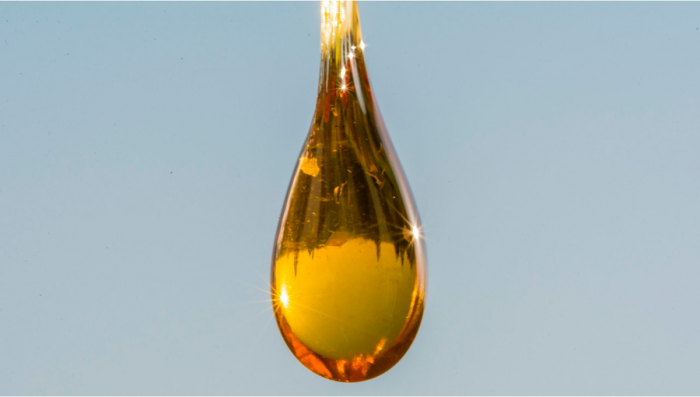







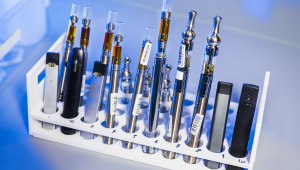



Comments